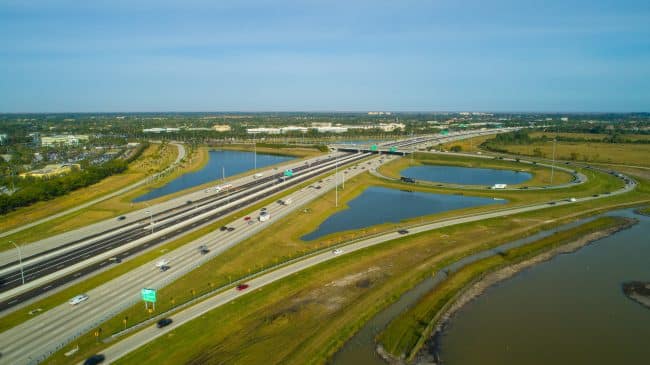America’s highways are in trouble.
Congestion on urban freeways has reached all-time highs, and the aging Interstate Highway System needs rebuilding and selective widening. Deferred maintenance for structurally deficient bridges and a teeming backlog of major projects lack funding. Most highway funding relies on gas taxes, which project declining revenues in the coming decades due to the likely growth of more fuel-efficient and alternatively-powered vehicles. Yet increasing the gas tax is politically difficult, especially at the federal level.
In response, a growing number of state departments of transportation (DOTs), governors, and legislators are looking at tolling as a way to increase highway investment. In some states, like Colorado and Virginia, tolling has had bipartisan support. But in others, recent years have seen growing opposition, especially from conservative groups and legislators.
For example, in Connecticut, the General Assembly Conservative Caucus staunchly opposes legislative efforts to re-introduce tolling to that state. In Texas, despite more than $10 billion in recent toll projects that are delivering real benefits in the Austin, Dallas/Ft. Worth, and Houston metro areas, conservative legislators have imposed a moratorium on most new toll projects. And in South Florida, a grass-roots anti-tolls movement has led to legislative efforts to abolish the successful Miami-Dade Expressway Authority, which operates five heavily used toll roads in that metro area.
This policy brief reviews conservative opponents’ arguments, finding some of them to be justified and others to be mistaken. It provides some historical context on American tolling and cites economist Milton Friedman’s prescient assessment of the defects of the gas-tax model back in 1952.
Building on those thoughts, this brief explains how tolling could be reformed consistent with basic conservative principles of limited government, decentralization, and markets. The brief identifies various problems with 20th-century tolling and introduces a 21st-century model called value-added tolling that provides a genuine value proposition to highway customers, rather than treating them simply as highway users. The brief also examines how this model would benefit all parties more than both the gas-tax system and 20th-century tolling, and would better reflect conservative principles. It then explains how this model could finance the rebuilding and modernization of the aging Interstate Highway System.
Tolling has a long historical record in America, but was suppressed in the 20th century by New Deal discrimination against investor-owned toll bridges and later by the 1956 federal law that created the Interstate highways and banned tolling on them.
In the first two decades of the 21st century, tolling has been revived in the form of toll-financed replacement of aging bridges, new tolled urban expressways, and partially toll-financed express toll lane projects in America’s largest and most-congested metro areas. The development of cashless all-electronic tolling technology, which has dramatically reduced the cost of toll collection, has fostered this revival and expansion of tolling.
Pure tolling is an example of the users-pay/users-benefit principle that is familiar to everyone thanks to its nearly universal use in all the vital utility services we use (electricity, natural gas, water supply, cable, telecommunications, etc.). But 20th-century tolling in some cases departed from this principle, as politicians required toll agencies to divert revenue to uses that did not benefit those paying the tolls. This paralleled the much larger-scale diversion of fuel tax revenues to non-highway uses by federal and state lawmakers.
Tolling can be revamped in the 21st century to align with the users-pay/users-benefit approach through implementing value-added tolling principles. These principles would bring tolling back into conformity with conservative principles of limited government, market pricing, decentralization, and freedom of trade and travel.

